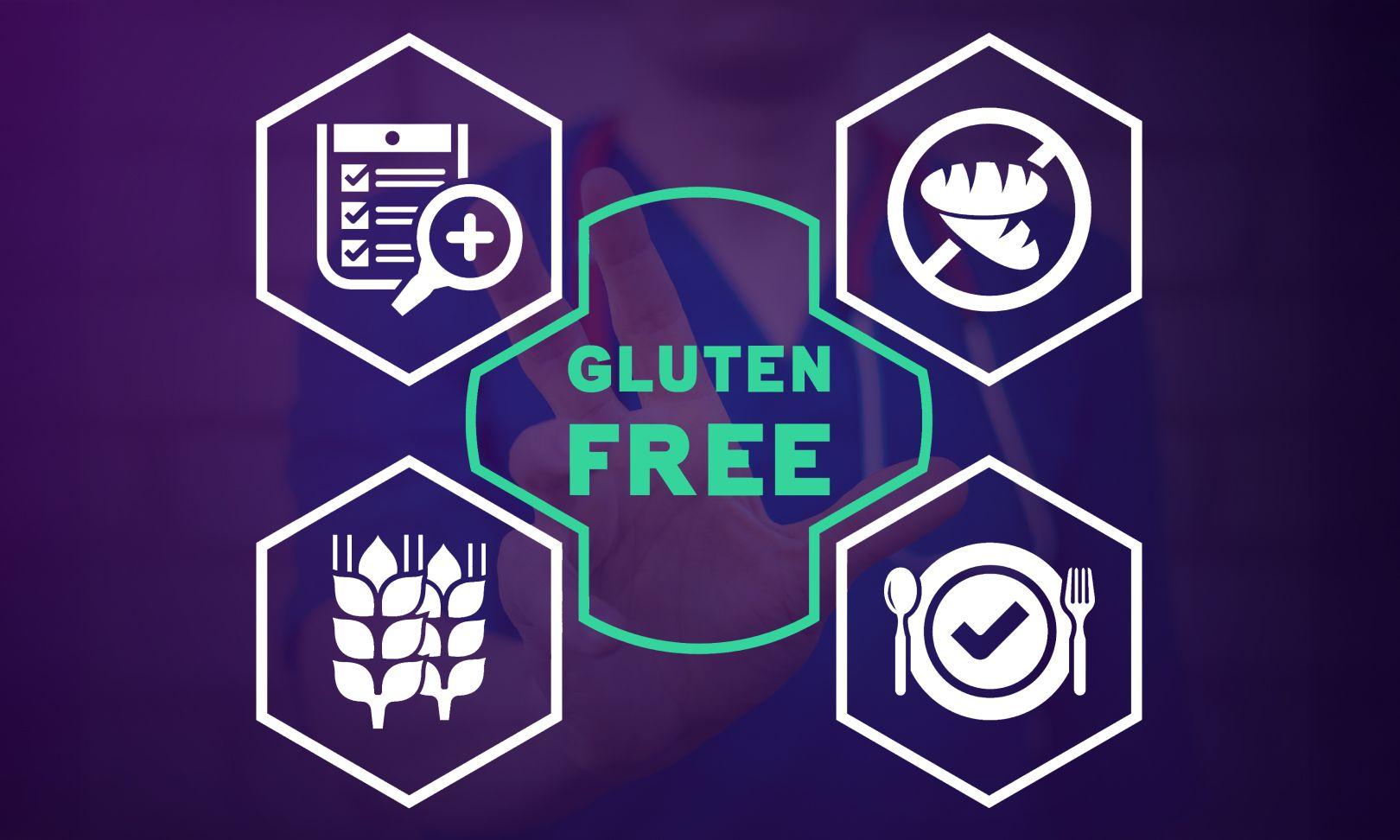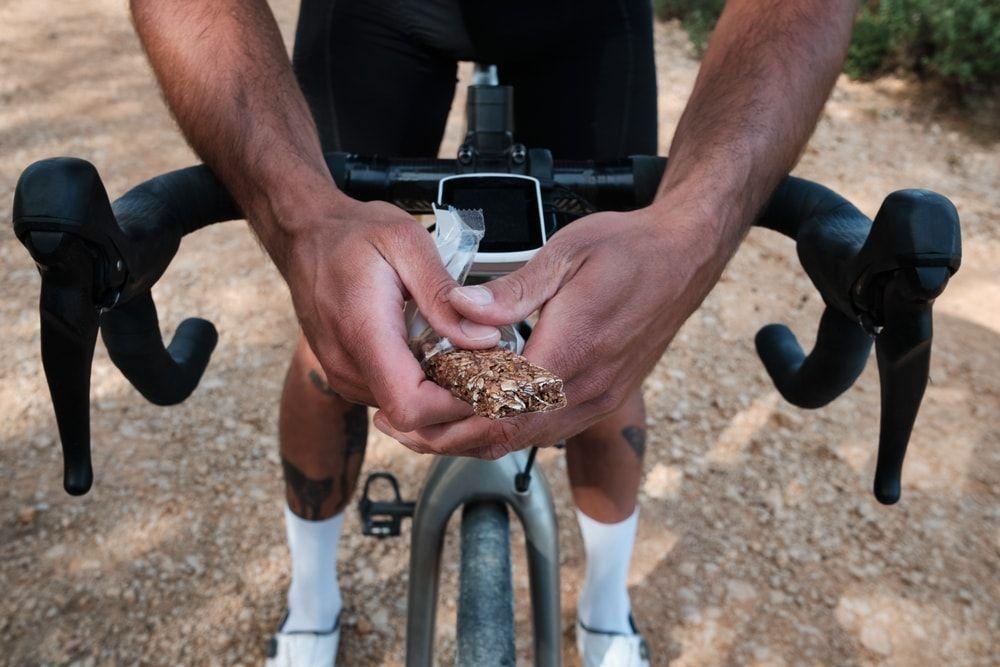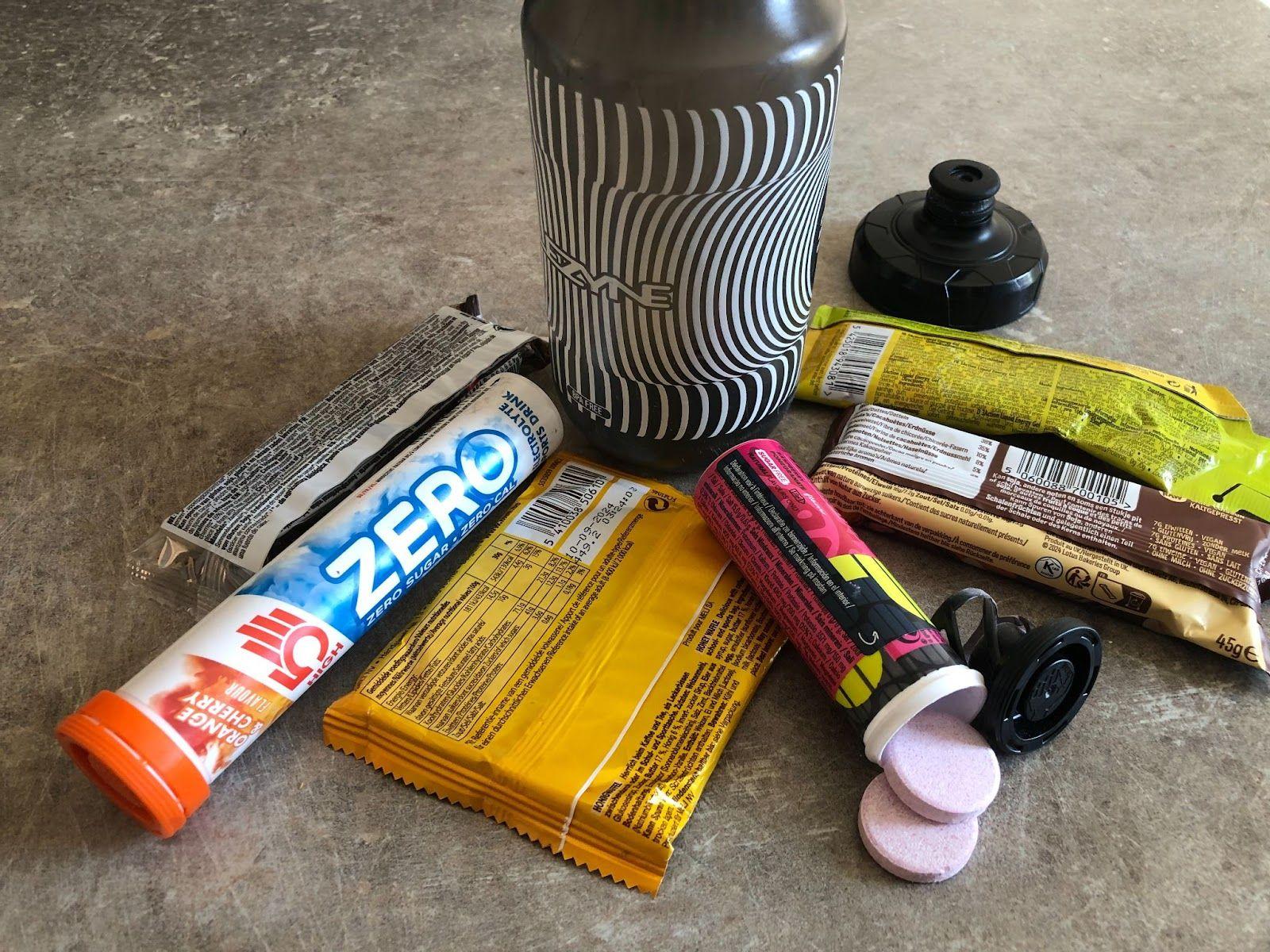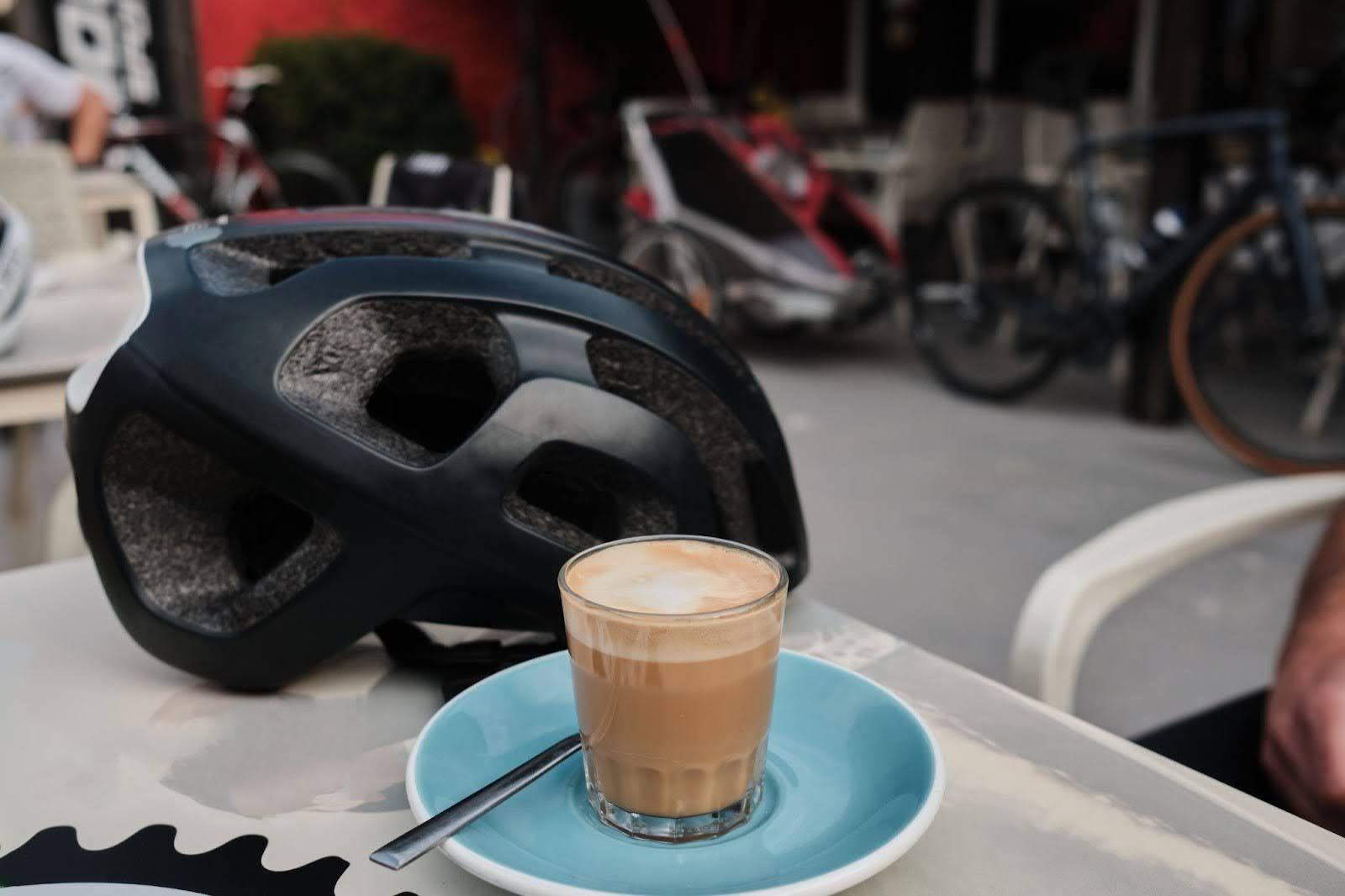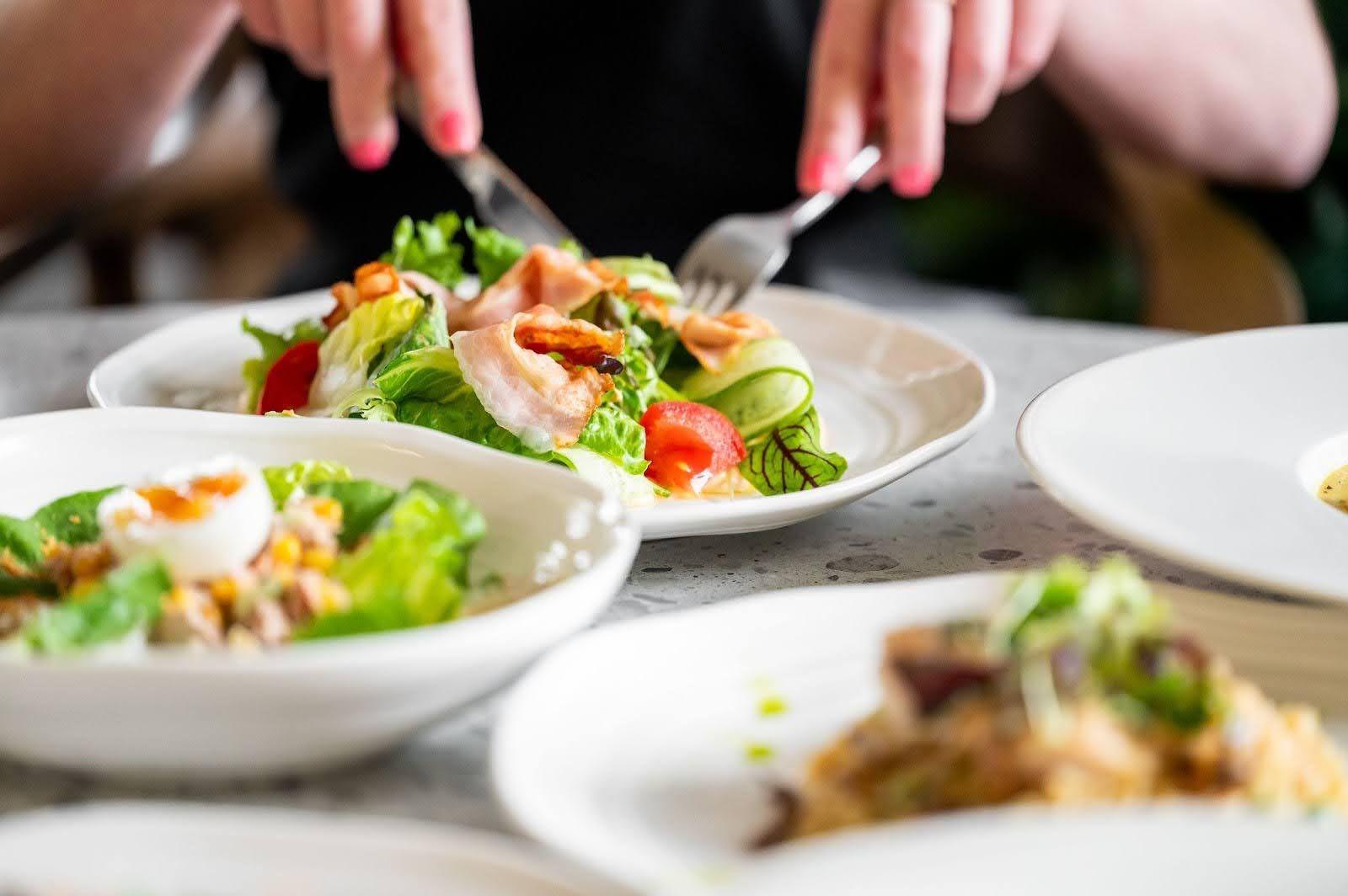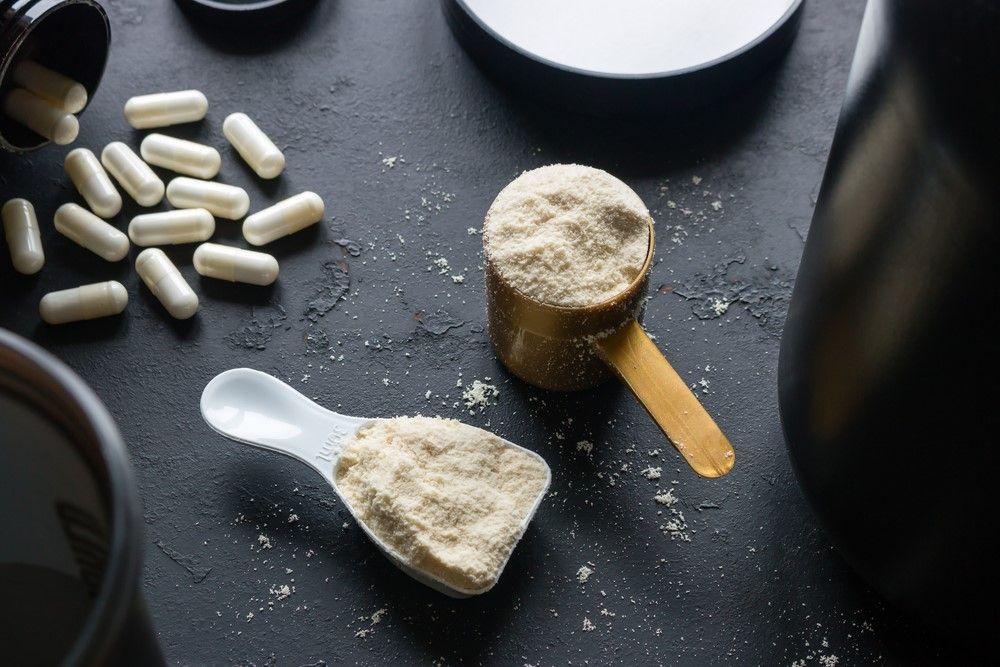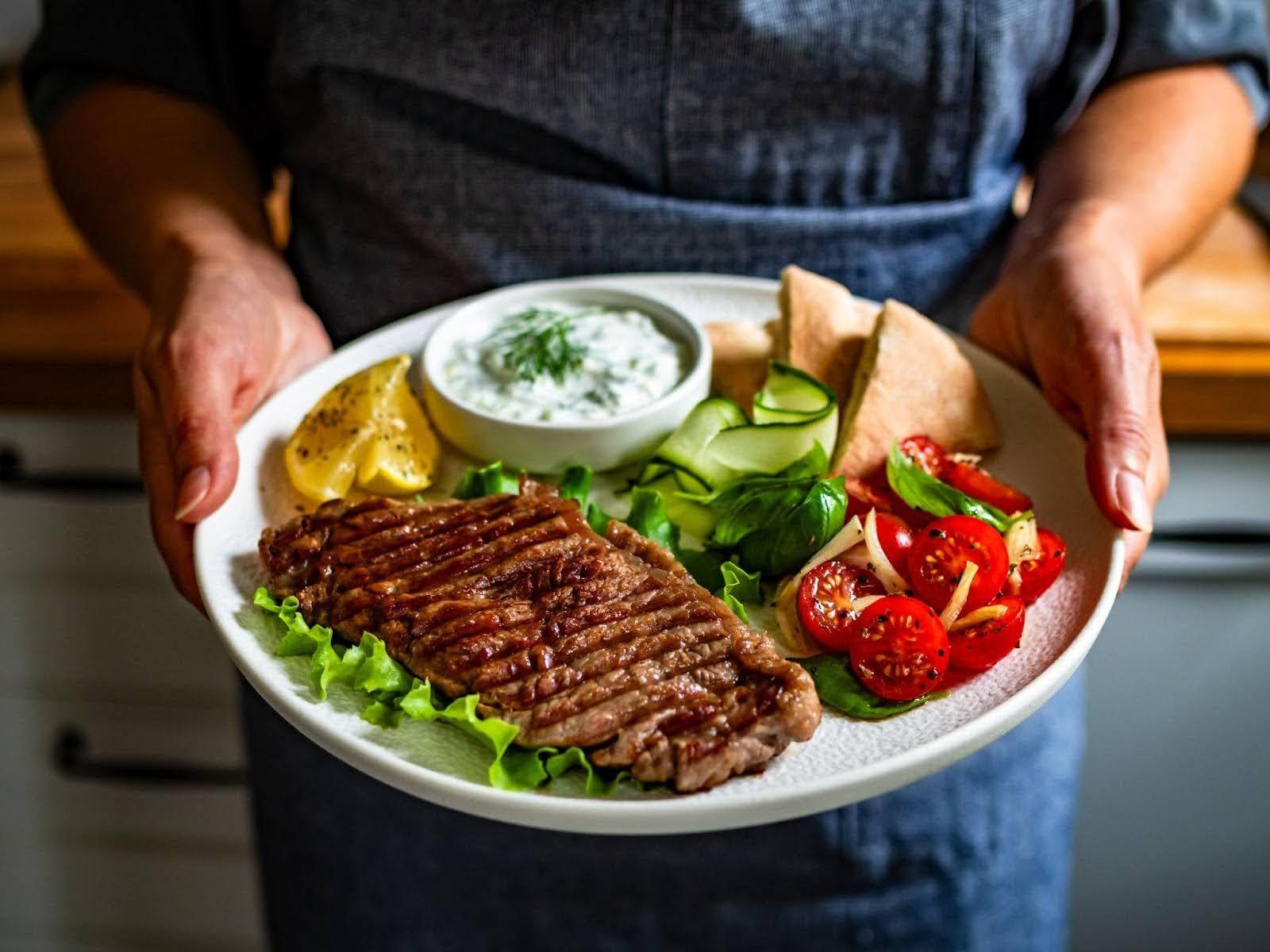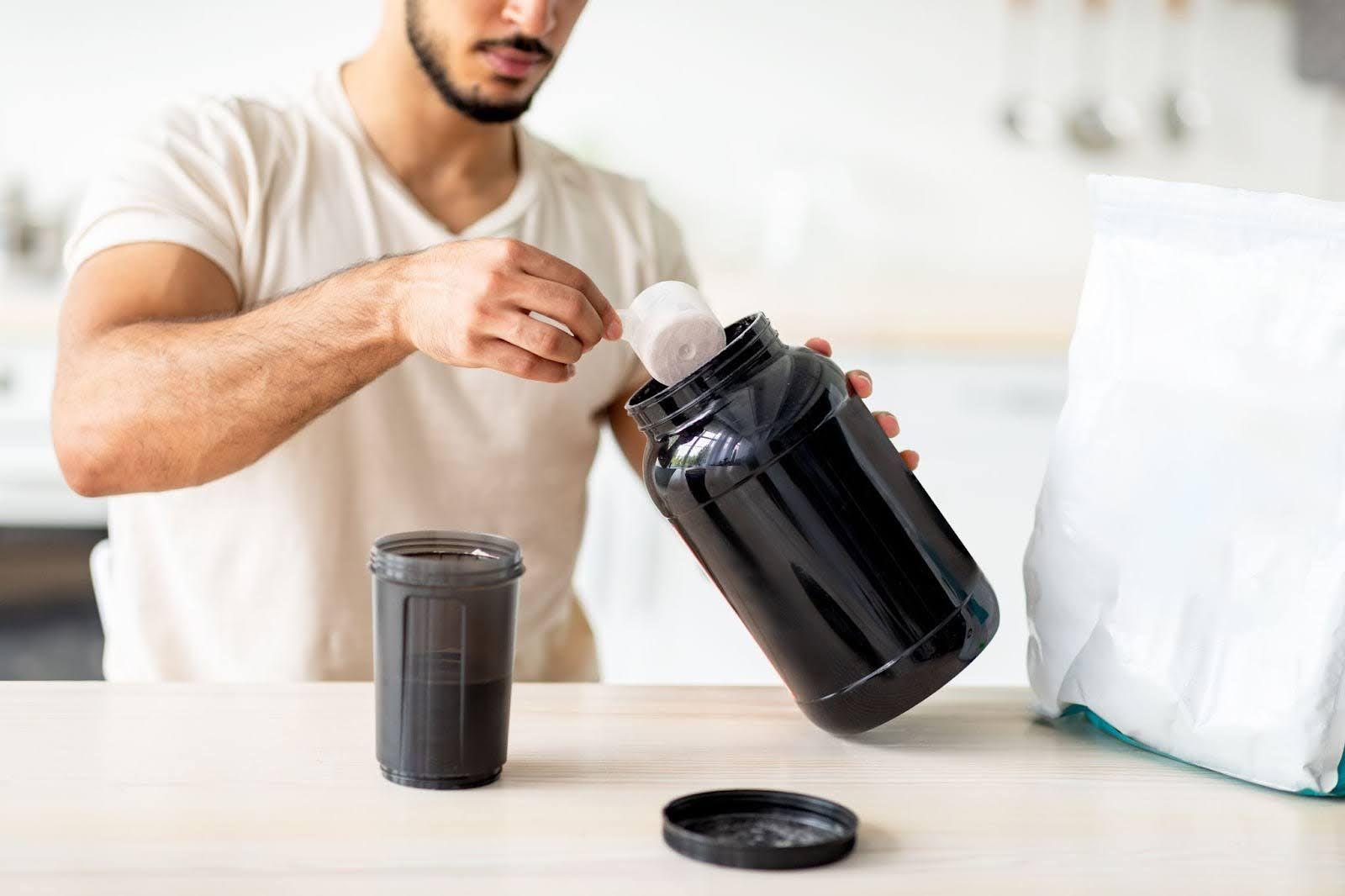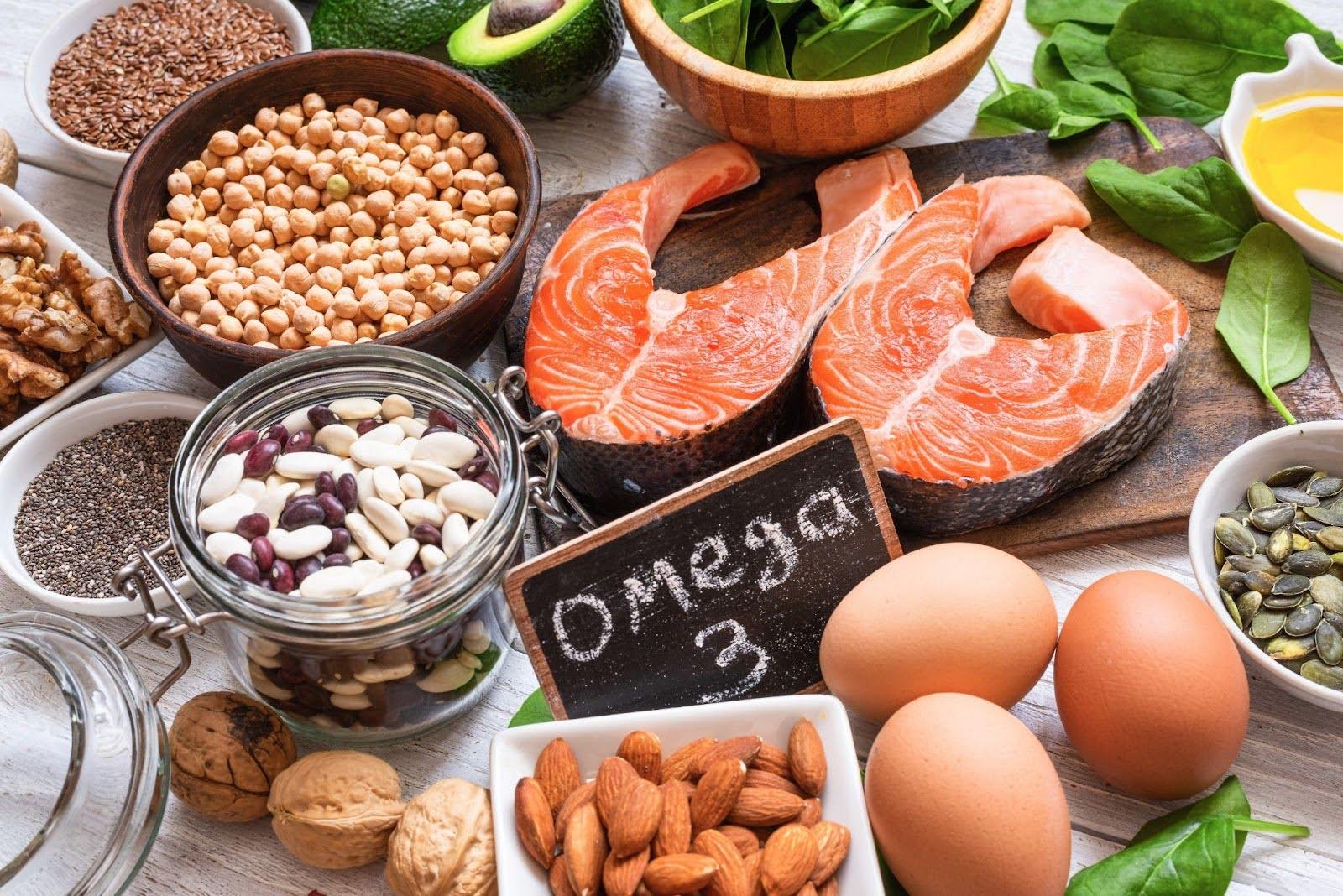For cyclists who are gluten intolerant, have coeliac disease or are just avoiding wheat for performance or lifestyle reasons, fuelling your bike rides without compromising energy and recovery is totally possible.
With the right approach to gluten-free cycling nutrition, riders can maintain endurance, stay energized and recover optimally. Whether you’re a seasoned competitor or just stay fit by following the pro-designed training plans on ROUVY, this guide has everything you need to know about gluten-free foods for cyclists.
The gluten-free diet for cyclists
Gluten-free diets are becoming more and more popular among athletes. For some, it’s medically necessary – coeliac disease is an autoimmune disorder triggered by gluten, a protein found in wheat, rye and barley. Others may have non-coeliac gluten sensitivity which causes gastrointestinal or neurological symptoms. And then there are those who avoid gluten because they believe it reduces inflammation, improves digestion or enhances performance.
But let’s separate fact from fad.
Studies have shown that – while in the absence of a medical diagnosis, switching to a gluten-free diet doesn’t automatically boost performance – athletes who feel better without gluten and eat a balanced, gluten-free diet can absolutely train and compete at the highest levels.
The key is making smart substitutions and maintaining a consistent intake of nutrients critical for endurance – gluten-free carbohydrates for endurance, enough protein and micronutrients.
Key nutrients to watch on a gluten-free diet
Traditionally, a cyclist's diet includes pasta, bread and cereal – foods that typically contain gluten. Replacing these with gluten-free carbohydrates is crucial to prevent energy deficits. Quinoa, brown rice, oats (certified gluten free), millet, corn and sweet potatoes are excellent alternatives.
These staples provide the complex carbs needed to fuel long rides and promote glycogen storage.
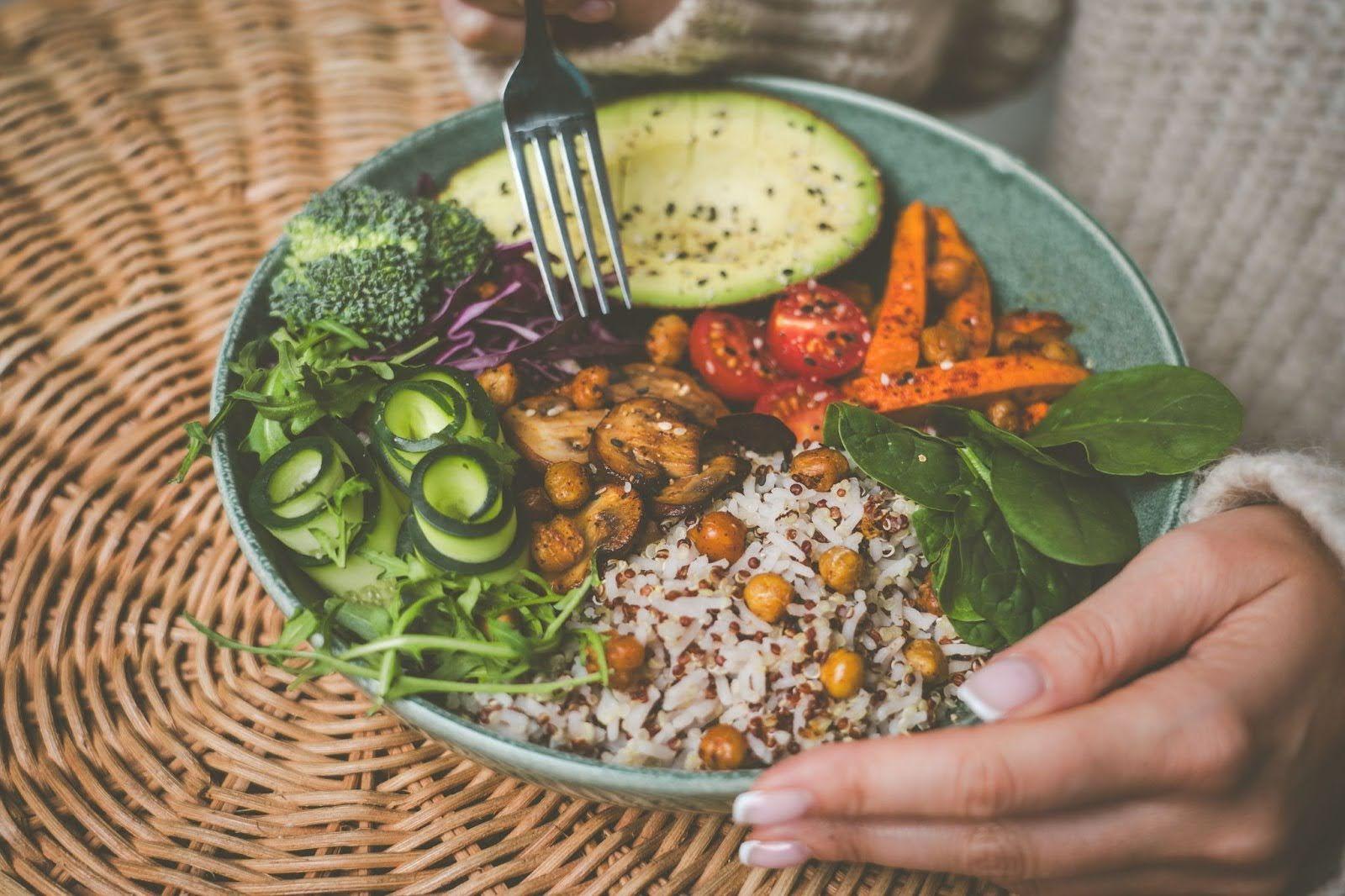
Protein remains essential for muscle repair and adaptation. Cyclists on a gluten-free diet should include legumes, lean meats, eggs, dairy and soy-based products. Plant-based riders can also rely on lentils, chickpeas and nuts. Healthy fats – found in avocado, olive oil, seeds, and fatty fish – support energy needs and reduce inflammation.
Micronutrient deficiencies, especially in iron, B vitamins (notably B12 and folate), calcium and fibre, can occur on a restricted diet. Fortified gluten-free cereals, leafy greens, dairy or non-dairy alternatives, and a colourful array of fruits and vegetables can help fill these gaps.
Paying attention to dietary diversity is also vital to avoid nutrient shortfalls.
Best gluten-free pre-ride meals
Before a ride, gluten-free meals for cyclists should focus on high-carbohydrate, low-fibre foods to maximize glycogen stores and prevent gastrointestinal discomfort. Good options include white rice with banana and honey, gluten-free toast with jam, or certified gluten-free oats cooked with almond milk and maple syrup.
Homemade meals offer more control over ingredients, cross-contamination, and portion sizes, particularly for coeliac riders.
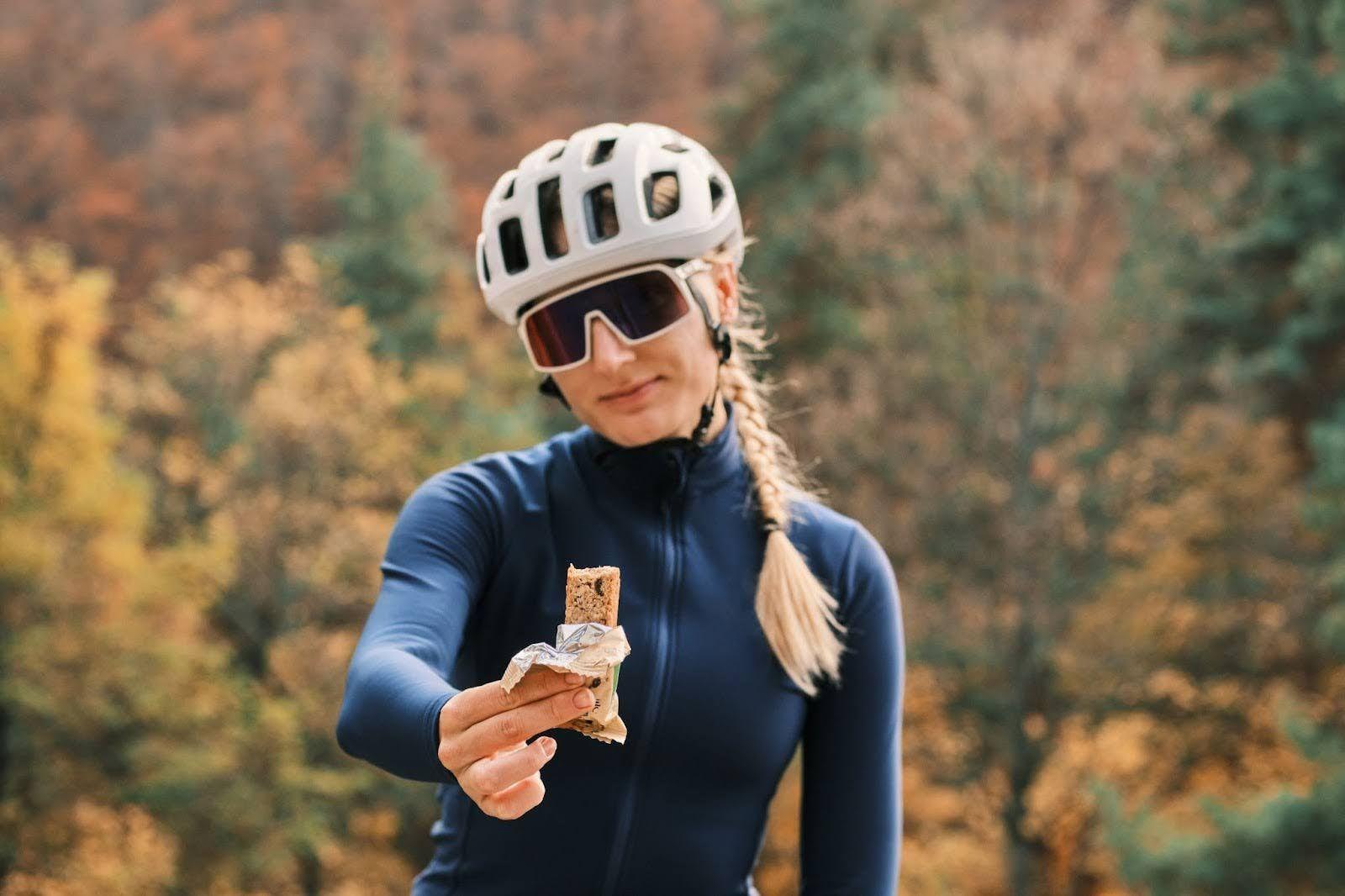
For those short on time, however, gluten-free packaged options such as granola bars, rice cakes or gluten-free bagels can work well; provided the labels are carefully checked for hidden gluten and artificial additives.
Planning pre-ride meals in advance as part of a cycling nutrition plan that’s gluten free can help ensure consistency in fuelling and reduce race-day stress.
Top gluten-free, on-the-bike snacks
When riding, accessibility, digestibility and energy density are key. The best gluten-free snacks for riders include energy bars made from dates and nuts, certified gluten-free chews, bananas, or small rice cakes wrapped in foil with a smear of peanut butter and jam. These options deliver quick carbs without triggering digestive upset.
DIY ride snacks can be a budget-friendly and safer alternative for those with severe sensitivities. Try baking gluten-free oat bars with honey, banana, and raisins, or rolling homemade energy balls with dates, coconut and seeds.
To manage mid-ride hunger, cyclists should aim to consume 30-60 grams of carbohydrate per hour, depending on ride intensity and duration. Sipping on gluten-free sports drinks and alternating with solid foods can help maintain energy levels.
Post-ride recovery: gluten-free replenishment
Recovery nutrition is key after long or intense bike rides. Ideally, post-ride gluten-free meals should be eaten within half an hour to an hour in order to replenish glycogen, reduce muscle breakdown and rehydrate.
Pasta with grilled chicken and veggies, fruit smoothies, protein powder and almond milk, or rice and beans with avocado are all strong gluten-free choices. These options have carbs, protein and healthy fats in the right ratios.
Protein is especially important. Tofu, eggs, Greek yogurt, tempeh, fish and legumes are all protein packed and gluten free. For convenience, there are now many gluten-free protein powders available – just make sure they’re from reputable brands with clear labelling.
Anti-inflammatory foods also play a role in recovery. Berries, turmeric, leafy greens and fish rich in omega-3 (such as salmon, sardines and cod) can help reduce post-workout muscle soreness and promote adaptation.

Mistakes to avoid on a gluten-free cycling diet
If you assume all gluten-free products are healthy, you’re falling into a common trap.
Processed gluten-free foods
Many processed gluten-free foods are low in fibre, high in sugar and lacking in nutrients. Sure, they’re convenient. But an over-reliance on processed foods can lead to energy crashes and sub-par recovery.
Hidden gluten
Another problem is hidden gluten. Unless you choose products that are labelled “certified gluten free,” soy sauce, salad dressings, processed meats and even oats can contain trace amounts of gluten. This can trigger symptoms and impact performance.
A lack of variety & fibre
Finally, some riders remove gluten but fail to replace it with enough variety and fibre. This can lead to digestive issues and a lack of sustained energy. You should be sure to include a broad range of gluten-free whole grains, legumes and veggies to help maintain a balanced, effective diet.
Research behind the diet
The gluten-free trend has gone beyond medical necessity but the science is complicated. Coeliac disease affects around 1 percent of the population and even small amounts of gluten can damage the small intestine. Gluten sensitivity is harder to diagnose but can still cause significant discomfort and performance issues.
But studies have shown that athletes without a medical diagnosis who adopt a gluten-free diet for perceived benefits may experience a placebo effect. A study in the Journal of the International Society of Sports Nutrition found no performance improvement in non-coeliac cyclists after a gluten-free diet for seven days. But reducing gastrointestinal symptoms can enhance comfort and focus during training, especially for those with underlying sensitivities.
The general consensus is that, with some planning, a gluten-free diet can support cyclists’ endurance and overall well being.
Conclusion: Ride stronger, eat smarter, go gluten free
Cyclists on a gluten-free diet – whether for health or preference – can thrive with meal planning and smart food choices. Knowing what to eat for gluten-free cycling is key to meeting the demands of training, avoiding nutrient deficiencies and staying energized on long rides.
Focus on whole foods, be varied and don’t be afraid to make your own snacks and meals. With the right gluten-free cycling nutrition plan you can have consistent energy, improved recovery and better performance on and off the bike.
For ROUVY users, dialling in your gluten-free cycling nutrition will help you train smarter and recover faster no matter the terrain – virtual or outdoors. From ROUVY’s structured workouts to long virtual climbs, fuelling your body correctly will mean you can ride stronger session after session.

No wheat? No worries. With the best gluten-free snacks for riders and knowledge of gluten-free foods for cyclists, you’re all set. Fuel up – and keep going!
Sources & further reading
- Harvard Health Publishing, Gluten: What You Need to Know
- Academy of Nutrition and Dietetics, Fueling the Gluten-Free Athlete
- Journal of the International Society of Sports Nutrition, Gluten-Free Diet Has No Effect on Performance in Non-Celiac Endurance Athletes
- 220 Triathlon, How Can Gluten-Free Athletes Get Enough Carbs to Help Optimise Training and Racing?
- Bicycling Magazine, Gluten-Free Meals for Better Cycling
- ROUVY, Best Nutrition Tracking Apps 2026 – Optimize Your Diet & Performance
- British Cycling, Gluten-Free Cycling Nutrition
- Cycling Weekly, Gluten-Free Cycling Nutrition: You Don’t Need Wheat, Barley or Rye to Fuel Your Rides
